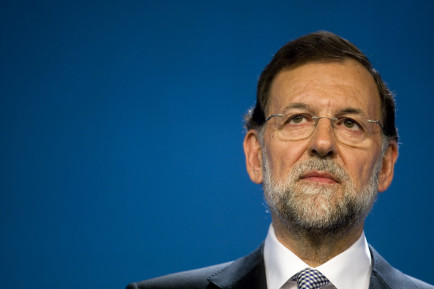
Rajoy will return as Spanish PM for a second time, but will be far weaker this time around.
On Sunday, Spain’s Socialist Party (PSOE) agreed to stand aside and allow stand-in Prime Minister Mariano Rajoy’s Popular Party (PP) to return to government after ten months of political impasse…
Although the decision by the PSOE to accede defeat was met with dismay by many left-leaning Spaniards, the end of the deadlock is generally seen as a positive for the country, and will usher Rajoy back to power next month – albeit as a Prime Minister far weaker than he was before.
Having failed to secure enough votes for a majority in either last December’s election or June’s election, the PP will now head into government with just 137 seats out of 350.
This means that Rajoy will have to negotiate nearly all political decisions with other groups in parliament. This watering down of the PM’s power was one of the few tenets of positivity for the PSOE, who argued that it was better to act to end the deadlock now and face down the PP in parliament, than to prolong the impasse for an unprecedented third time.
Rajoy will now meet with King Felipe before two further rounds of voting in Congress will see the PP re-installed as the governing party of Spain by the end of next week.
The PSOE traditionally “traded” power with the PP as Spain’s electorate swung from left to right. However, the recent recessions triggered the emergence of two upstart parties – the far-left Podemos and the centrist Cíudadanos – which served to take votes from both main parties, but chiefly and significantly, from PSOE.
To stand aside could not have been easy for PSOE’s new leader Javier Fernández, but he called the decision the “lesser of two evils”, and it is certainly being seen that way by the Spanish public, press and economists, all of whom are happy to see an end to the ongoing disputes that have plagued Spanish politics for almost a year.
In voting to lift its veto in allowing the PP to form a government, the PSOE saw 139 regional voters in favour of the move, and 96 against. This shows how divisions within the party remain rife, and hints that there will be no easy road for Rajoy as he assumes a second term in office.
“It’s unprecedented in Spain to have a government with so little parliamentary support,” Fernando Vallespín, politics professor at the Autonomous University of Madrid told The Local. “Rajoy will have to negotiate every single law.”
 en
en



 Vlaams-Nederlands
Vlaams-Nederlands
1 Comment
Leave a Comment
DISCLAIMER
The opinions and comments expressed by contributors to this Blog are theirs alone and do not necessarily reflect the views of VIVA Homes Under the Sun Ltd, any of its associated companies, or employees; nor is VIVA to be held responsible or accountable for the accuracy of any of the information supplied.
James BurrowOctober 30, 2016 at 8:21 am
Good luck to the new government. It would be nice to hear some positive news about banning the sick and shameful torture of bulls across the remainder of Spain, following Catalonia’s intelligent and progressive ban in recent years.
It would also be good to hear some reassurance for the 400,000 British ex-pats in the wake of the UK referendum result.
Have you got something to say?